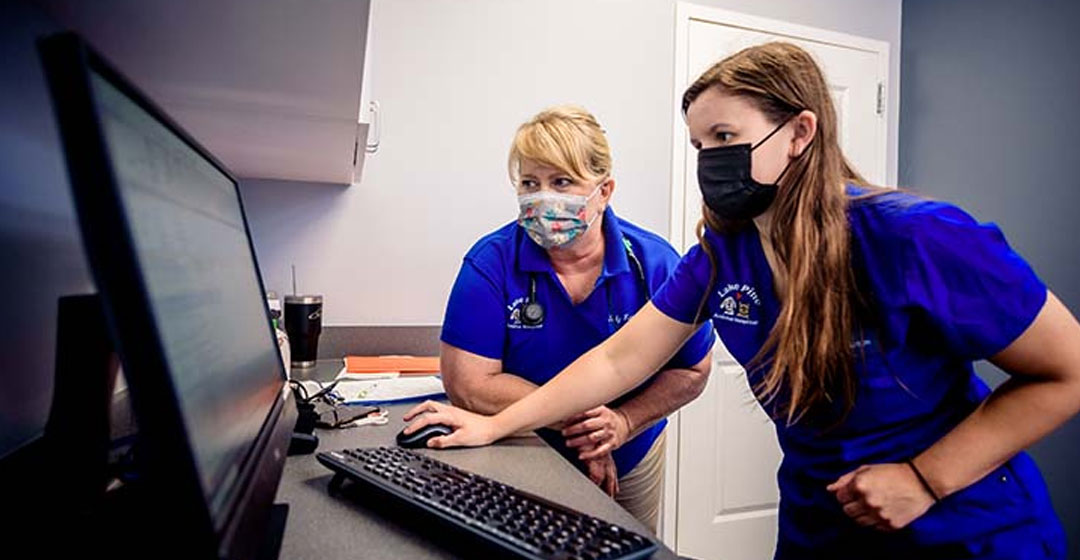Our state-of-the-art diagnostic tools and expertly trained veterinary professionals ensure fast, accurate results that allow us to provide top-tier care.

Diagnostic testing enables our team to determine your pet’s health status and diagnose disease. From wellness screening blood tests to advanced imaging techniques, our diagnostic capabilities support diverse pet health needs.
Lab Diagnostics
We offer a full range of in-house and reference lab testing to give you quick, reliable answers about your pet’s health. From same-day results to specialized screenings, our diagnostic tools help us tailor the most effective treatment plan—without unnecessary delays.
Recommended Lab Work Testing by Age
Dogs
Cats
To learn about these tests and their importance click here.
X-ray
X-rays are a vital diagnostic tool for examining your pet’s bones, joints, chest, abdomen, bladder, and other internal structures. Our hospital uses X-ray technology that provides fast, high-quality images and minimizes radiation exposure. Our veterinarians can interpret initial X-ray studies and may consult with a radiology specialist for expert image review.
Ultrasound Imaging
Ultrasound allows us to see what’s happening beneath the surface—whether evaluating internal organs, assessing heart function, or investigating abdominal concerns. With both abdominal ultrasound and echocardiography capabilities, we’re able to diagnose conditions with clarity and guide your pet’s care with confidence.





